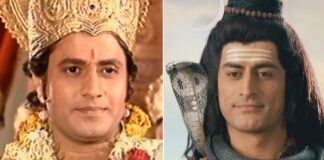
Rajesh Khanna, often referred to as the ‘First Superstar of Indian cinema’, rose to fame, and his charismatic on-screen presence made him a cultural icon during the 1960s and 1970s. Khanna made his acting debut in the film ‘Aakhri Khat’ in 1966 but gained widespread recognition with the movie ‘Aradhana’ (1969), where he played a double role.
The success of this film catapulted him to unprecedented stardom, and he went on to deliver a series of hit films in the early 1970s. During this period, he had an unparalleled run of success with consecutive box office hits, earning him the title of ‘Bollywood’s first superstar.’
Nevertheless, the rapid ascent that brought him fame and admiration dissipated with equal speed, leaving Rajesh Khanna perplexed about the sudden downturn. Salim Khan, one half of the prolific writing duo Salim-Javed, had received his initial major opportunity with Rajesh’s film “Haathi Mere Saathi.” This marked the inaugural collaborative credit for Salim-Javed as a writing team, and in a book from 2014, Salim Khan recollected witnessing Rajesh Khanna’s decline.
Trending
In Yaseer Usman’s book, “Rajesh Khanna: The Untold Story of India’s First Superstar,” Salim Khan discusses Rajesh Khanna’s approach to coping with his setbacks. As reported by The Indian Express, he said, “When his films started flopping, he didn’t look within to evaluate what was going wrong and where. He started blaming others. He used to feel that there was some conspiracy against him.”
The book delves into the superstar’s desire to establish a cinematic ‘camp,’ where individuals would exclusively collaborate with him. However, Salim-Javed expressed disinterest in this idea and conveyed their decision to him, a stance that did not leave a favorable impression on Rajesh Khanna. Salim Khan said in the book, “His cronies used to instigate him in such matters. We [Javed and I] told him, ‘You are doing ten films with different producers and expect that we work only with you. How is that possible?’ But he did not have the maturity to understand that we would work with him as well as other stars. He was a very possessive person by nature.”
According to the book, Rajesh Khanna’s perceived ‘immaturity’ prompted those around him to share narratives that contributed to his ‘isolation.’ Ajit Ghosh, responsible for managing Rajesh Khanna’s public relations, conveyed to Usman, “If he were told someone has criticized him, he would believe it and turn against that person without bothering to verify [the facts]. That was the reason he became isolated. He made more enemies than friends.”
Salim Khan also expressed a similar sentiment, noting that Rajesh Khanna was averse to disagreement and perceived it as a form of opposition. Salim remarked that if anyone proposed an idea outside Rajesh Khanna’s preferences, he interpreted it as opposition. Rajesh did not handle disagreements well, often responding as if the individual, even someone close, were an adversary.
In a 1990 interview, Rajesh Khanna discussed the god-like sensation he experienced upon achieving stardom. Years later, in an interview with Movie magazine, he remarked, “I felt next to God!” The iconic superstar passed away in 2012 at the age of 69.
For more updates on Bollywood News, follow Koimoi
Follow Us: Facebook | Instagram | Twitter | Youtube | Google News



 Follow Us
Follow Us











